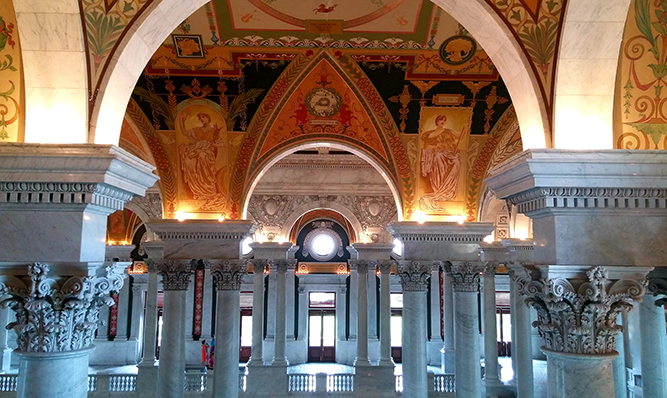
The Library of Congress in Washington, D.C.
If you’re going to get an MBA in or around Washington, D.C., it’s not a bad idea to know a few things about local history. Do you know how many presidents the United States has had since its founding in 1776? (The answer: 44. Were you thinking 45? That's an easy mistake. There have been 45 presidencies, but only 44 presidents. Grover Cleveland was elected to serve two non-consecutive terms, making him the 22nd and 24th president.) How about their leadership styles? (Tough to say, but it’s possible to make an argument for 44 different styles.)
In any case, MBAs don’t have to be U.S. history buffs. The point is that a lot can be learned from 243 years of collective U.S. leadership experience.
Here are a few simple presidential tools that every Washington, D.C., MBA should know about:
1. The Eisenhower Box
34th U.S. President Dwight D. Eisenhower
Use the Eisenhower Box – also known as the Eisenhower Grid or Eisenhower Matrix – to prioritize tasks based on urgency and importance.
|
|
Urgent |
Not Urgent |
|
Important |
Do immediately yourself |
Plan a date and time to do it |
|
Not Important |
Delegate |
Eliminate |
2. Thomas Jefferson reading plan
3rd U.S. President Thomas Jefferson
Knowledge acquisition happens in many ways: by exploring the world, in a classroom, by having a conversation, or by reading. Thomas Jefferson was a vigorous advocate of the latter. He once wrote, “I cannot live without books.” But Jefferson did live without them for a while, after selling his collection (and the ideas held within) to the U.S. Library of Congress in 1815.
Jefferson approached learning through books like a bodybuilder approaches building muscle. Jefferson thought comprehensively about which topics he wanted to understand and mapped the inputs (books) to the outputs (knowledge and opinion). The muscles he worked to build were in the areas of history, philosophy, religion and literature.
Today, you might add categories such as science, politics and business to Jefferson’s list. But the overarching approach to information intake remains the same. You can build knowledge strategically through books.
Sample reading plan structure:
- History (ancient and regional)
- Book 1
- Book 2
- Philosophy
- Book 1
- Book 2
- Religion
- Literature
- Additional categories such as science, politics or business
3. Eleanor Roosevelt's approach to small talk
First Lady and wife of 32nd President Franklin Delano Roosevelt
Small talk can be a challenge for even the most verbose MBA. Networking events that go on for hours – or even days – can leave you with little of importance to say. Eleanor Roosevelt had a trick for making it all a little easier. She would go through the alphabet until a topic caught her conversation partner’s interest. She used this tactic to push past small talk into more meaningful conversation. Here’s an example of how it works:
A: Are you planning a trip to an apple orchard or distillery this fall?
B: Have you heard about the less aerodynamic baseball being used this season by Major League Baseball (MLB)?
C: Will you be dressing up for Halloween this year? What’s the best costume you ever wore?
Find out more
If you’re interested in learning more, check out one of the unusually large sections on presidential biography available at D.C. bookstores:
- Capitol Hill Books, 657 C St SE, Washington, D.C.
- Politics and Prose, 5015 Connecticut Ave NW, Washington, D.C.
- Kramerbooks, 1517 Connecticut Ave NW, Washington, D.C.
–By Miranda Taylor. Taylor is a 2020 MBA candidate. She is originally from Minneapolis, and worked as a science writer and digital content strategist in the health industry before coming to Maryland Smith to pursue an MBA.
Photo credit: Mateus Campos Felipe via Unsplash
Media Contact
Greg Muraski
Media Relations Manager
301-405-5283
301-892-0973 Mobile
gmuraski@umd.edu
About the University of Maryland's Robert H. Smith School of Business
The Robert H. Smith School of Business is an internationally recognized leader in management education and research. One of 12 colleges and schools at the University of Maryland, College Park, the Smith School offers undergraduate, full-time and flex MBA, executive MBA, online MBA, business master’s, PhD and executive education programs, as well as outreach services to the corporate community. The school offers its degree, custom and certification programs in learning locations in North America and Asia.